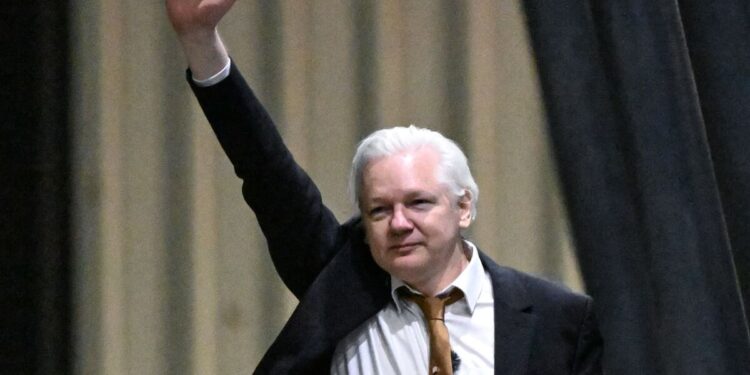The United States ruled on Wednesday that WikiLeaks founder Julian Assange, who is now free after an agreement with American justice, had put people in “danger” by disseminating thousands of confidential documents in the 2010s.
• Read also: Julian Assange soon free after an agreement with American justice
• Read also: The conditions of the agreement for the release of Julian Assange
• Read also: Julian Assange pleads guilty before US court
“The released documents provided identifying information about individuals in contact with the State Department, including opposition leaders, human rights activists around the world, whose situations were put at risk due to their public disclosure,” said State Department spokesperson Matthew Miller.
“It also hampered the ability of U.S. personnel to build relationships and have frank conversations,” Miller added.
Earlier in the day, Mr. Assange, 52, was released after a quick hearing in the US federal court in Saipan, in the Northern Mariana Islands. He returned to Australia, his country of origin.
Under the agreement, the former computer scientist pleaded guilty to obtaining and disclosing national defense information.
American justice was pursuing him for having made public since 2010 more than 700,000 confidential documents on American military and diplomatic activities, particularly in Iraq and Afghanistan.
Mr Assange is regarded by his supporters as a free speech hero, but his critics accuse him of releasing vast quantities of government documents without any filtering.
At the time, the State Department “had to go out of its way to get people out of danger,” Mr. Miller said, without being able to provide details.
The spokesperson for American diplomacy refused to comment on either the justice agreement itself or the negotiations with Australia, in particular those which made it possible to resolve this legal saga of nearly 14 years.



